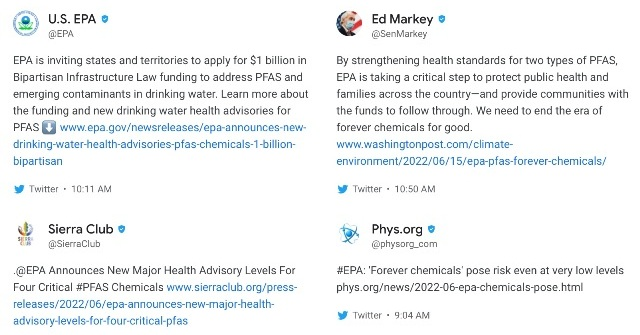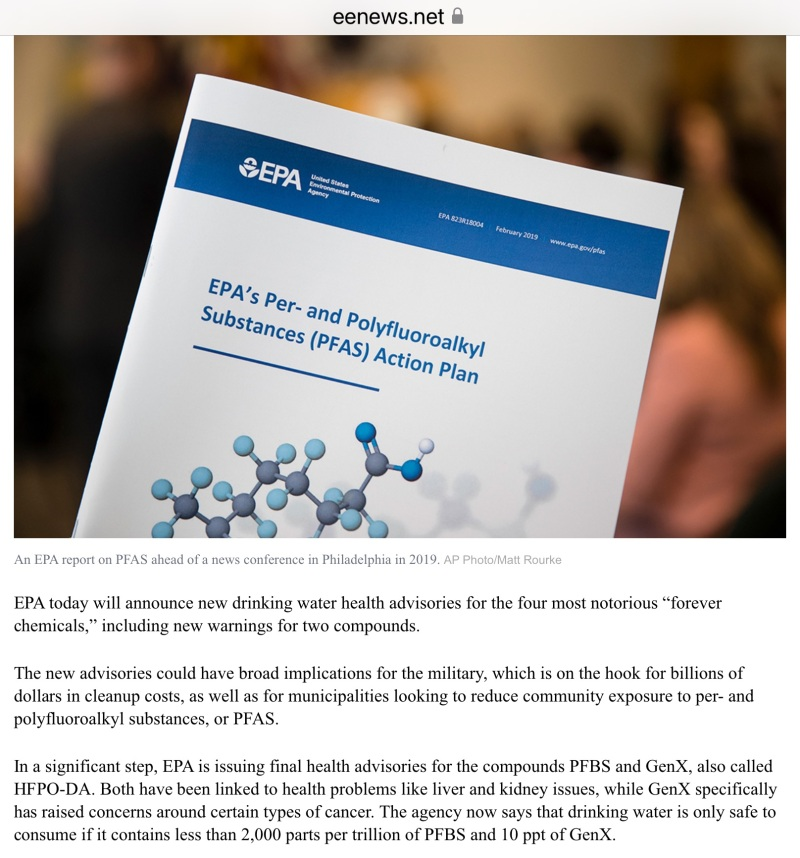PFAS
June 2022
PFAS - 'Forever Chemicals'
2018
PFAS
Per- and polyfluoroalkyl substances
PFAS is a class of chemicals that includes PFOA (perfluorooctanoic acid), PFOS (perfluorooctanesulfonic acid), PFNA (perfluorononanoic acid) and PFHxA (perfluorohexanoic acid).
What are PFAS?
Perfluoroalkyl substances (PFAS) are very stable manmade chemicals that have properties that allow them to repel both water and oil. The different PFAS have different lengths and/or differ in their properties at one end, which can change the toxicity of the chemicals. The most commonly found and best studied PFAS are perfluorooctanoic acid (PFOA) and perfluorooctanesulfonic acid (PFOS).
Where are they found?
The fat and water repelling properties of these substances allowed them to be applied to almost any material to make it water, oil, and stain repellant. These properties were first used commercially in the 1950s, and they are used in a wide variety of consumer products, including carpets, clothing, non-stick pans, paints, polishes, waxes, cleaning products, and food packaging. Firefighters and the military use them in fire-suppressing foam.
PFAS do not readily breakdown in the environment and are water soluble. As a result, there are very low levels of PFAS in many areas of the environment. Higher levels can be found in water supplies near facilities that manufactured, disposed, or used PFAS.
Congressional hearings on PFAS / September 2018
U.S. House panel are beginning hearings on water contaminated by a potentially harmful category of fluorinated compounds known as PFAS chemicals.
Lawmakers on a House Energy and Commerce subcommittee heard from a panel of witnesses including Carol Isaacs, director of the Michigan PFAS Action Response Team.
“Every family deserves to know the truth about what is going on regarding PFAS. It has been in the news and there is too little information about the health risks and ways to address it in the environment,” said Rep. John Shimkus, R-Illinois, who chairs the Environment Subcommittee.
“With all the questions about PFAS exposure impacts swirling around, it’s critical that we investigate the facts, the real risks, and what it takes to protect the public and clean up the contamination."
○

